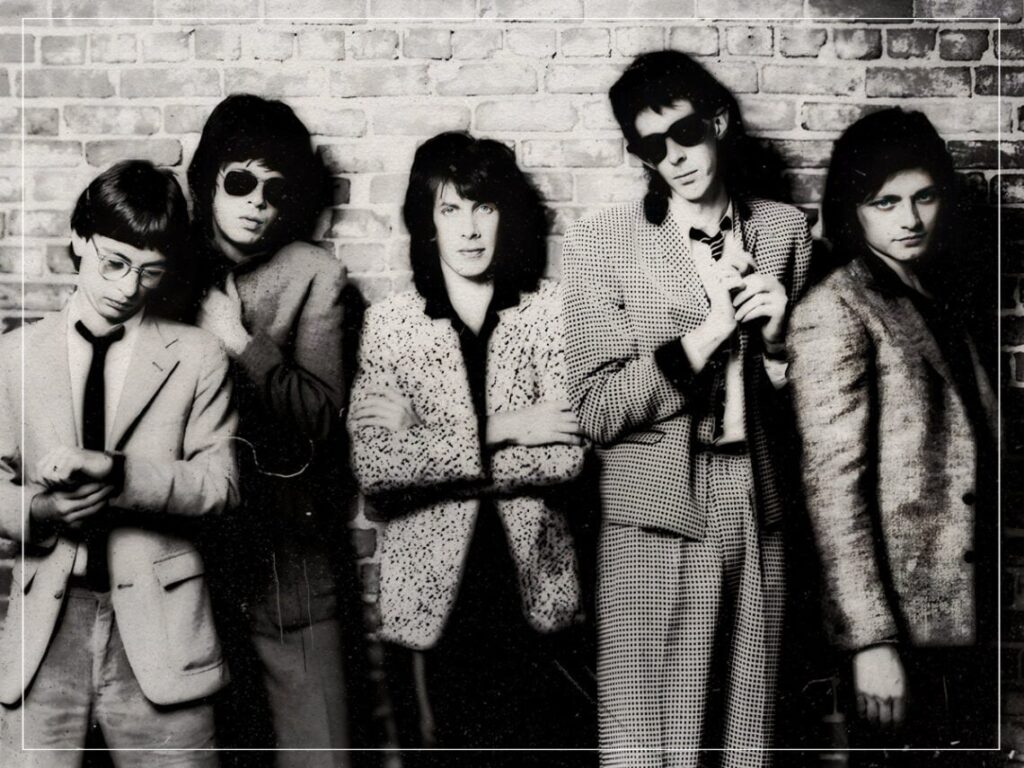Ric Ocasek: The new wave mastermind who changed pop music
 Posted On
Posted On
(Credits: Far Out / Lynn Goldsmith / Elektra Records)
There are no set rules for what constitutes a true rock star. While many would point to artists like Slash as the ultimate example of what a rock star should look like, not everyone will have the leather jacket and swig Jack Daniel’s straight out of the bottle to play the part of a rock god. And when it came to The Cars, no one really expected that one of the greatest pop songwriters of all time was going to be an abnormally tall dork named Ric Ocasek.
That might be harsh, though. Ocasek arrived in the same era as the biggest names in new wave, like Devo and Elvis Costello, were making waves, so he certainly fits the mould. When he opened his mouth to sing and play guitar, though, this wasn’t some experimental rock. This was the kind of AM radio gold that most songwriters dream of making.
Coming out in 1978, The Cars feels like a glorified greatest hits album from the band, each song having its own unique identity. Even if you aren’t a fan of any sort of pop music, this could be the record that changes your mind, putting roaring guitars behind classics like ‘Good Times Roll’ and ‘Just What I Needed’ and keeping things delightfully weird on tracks like ‘You’re All I’ve Got Tonight’.
While Ocasek shared vocal duties with bassist Benjamin Orr, it’s easy to tell when he wrote the song. Favouring the kind of power pop styles heard in bands like The Raspberries, some of his greatest melodies hit in the same way those early British Invasion records might have sounded in the 1960s, especially with the quirky synthesiser lines and impressive vocal harmonies.
Without really knowing it, Ocasek was creating the blueprint for what power pop would become. There had been pop-leaning songs before, but his versatility with a guitar and in the producer’s chair made him one of the more genre-flexible frontmen in rock. Since most 1970s bands were considered yesterday’s news by the time MTV kicked in, Ocasek managed to get even bigger by embracing the sounds of electronic instruments.
They may have flirted with synths in their early years, but hearing songs like ‘Magic’ and ‘Drive’ in the 1980s was the kind of sugar rush that most pop fanatics would eat right up. He still may have had his unique approach to vocals, but as long as the band were firing on all cylinders, you hardly even noticed.
Even when The Cars broke up at the end of the 1980s, Ocasek was just getting started on his hot streak as a producer. Outside of producing his own solo albums, Ocasek ended up working with pop-punk legends Weezer on their first album, which means that he is the guy responsible for getting every fan to sing along to ‘Buddy Holly’ and ‘Say It Ain’t So’.
Though his taste as a producer leaned more towards punk throughout his career, Weezer’s self-titled Blue Album set the standard for how pop punk would sound as well. It might have still been heavy, but this wasn’t grunge by any means. This was the kind of music that you danced around your room listening to.
If you look at where the sounds of pop have gone since then, though, there are still traces of Ocasek laced throughout every generation. The entire pop-punk genre owes him a debt of gratitude for creating their sound, and his melodic sensibilities have been carried on by people like Max Martin today, focusing just as much on the sonics of the record as they are on the raw performances.
Ocasek was never looking to be in the spotlight for too long. He was just a man wanting to live the life of a musician, constantly working in the background and letting the big guns do all the grunt work when it came time to deliver onstage. Ocasek may have been a fairly unassuming celebrity throughout his career, but up until his death in 2019, he proved every day that there was a bit of genius hidden underneath those iconic shades.
[embedded content]


